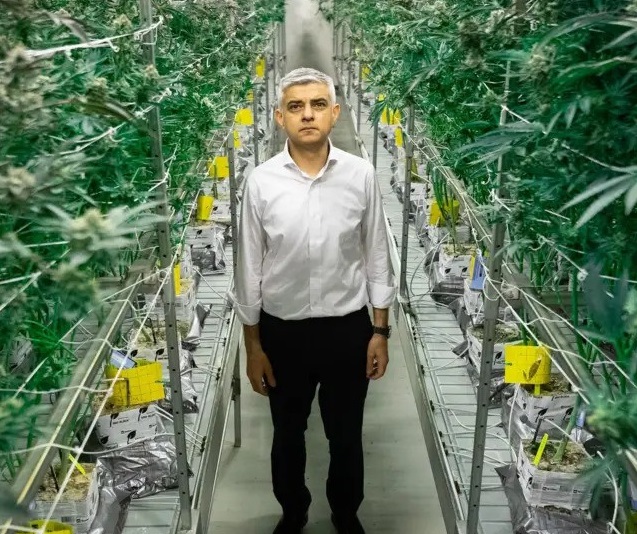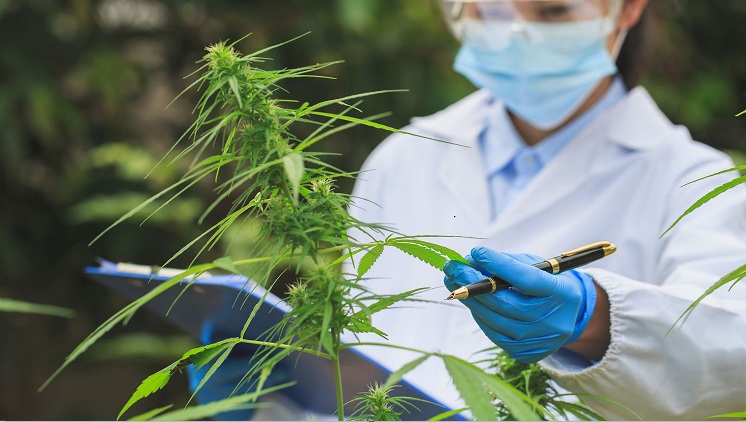London's landscape might be on the cusp of significant change as Mayor Sadiq Khan throws his weight behind a comprehensive report advocating for cannabis law reform. The London Drugs Commission (LDC), established by Khan in 2022 and chaired by former Labour cabinet minister Lord Charlie Falconer, has released a 320-page document that presents a compelling case for decriminalising the possession of small quantities of cannabis for personal use.
After examining evidence from over 200 experts and academics worldwide, the commission concluded that current cannabis laws are disproportionate and ineffective, particularly affecting Black and ethnic minority communities through racially skewed policing practices. The report's findings have sparked renewed debate about drug policy in the UK, with potential implications that extend far beyond London's boundaries.
The Commission's Key Findings
The London Drugs Commission's report represents one of the most thorough examinations of cannabis policy in recent British history. After extensive research and consultation, the commission arrived at several crucial conclusions that form the backbone of their recommendations.
Central to their findings is the recognition that while cannabis can indeed cause harm and addiction for some users, the current legal framework creates more problems than it solves. The commission highlighted that cannabis policing disproportionately targets certain ethnic communities, creating lasting damage to individuals, wider society, and police-community relations.
The report also criticised the classification of cannabis as a Class B substance under the Misuse of Drugs Act, arguing this categorisation is disproportionate when compared to other controlled substances. Current sentencing options, particularly for personal possession, were deemed unjustifiable when weighed against the long-term impacts of involvement with the justice system.
Additionally, the commission found significant shortcomings in cannabis education, noting that current approaches fail to adequately inform young people and healthcare professionals about the risks and realities of cannabis use.
The 42 Recommendations
The commission's report outlines 42 specific recommendations spanning education, healthcare, and policing. These proposals aim to create a more balanced and effective approach to cannabis in London and potentially across the UK.
The most headline-grabbing recommendation calls for natural cannabis to be removed from the Misuse of Drugs Act, where it currently sits as a Class B drug alongside substances like ketamine. Instead, the commission suggests maintaining cannabis as a controlled substance under the Psychoactive Substances Act (PSA).
Other key recommendations include removing the suspicion of cannabis possession as grounds for police to initiate stop and search procedures, improving public health services for cannabis-related harm, enhancing cannabis education with age-appropriate content, supporting fair access to medical cannabis, and monitoring international developments with a view to reassessing broader legalisation in five years.
The report emphasises that while dealing cannabis should remain criminal, possession of small quantities for personal use should not be criminalised. This approach, the commission argues, would reduce racial disproportionality in policing and make legal consequences more proportionate to the actual risks posed by cannabis.
Mayor Khan's Endorsement
Sir Sadiq Khan has been vocal in his support for the commission's findings, stating that current rules "cannot be justified" and that the report provides "a compelling, evidence-based case" for decriminalisation. The mayor has long advocated for fresh thinking on reducing drug-related crime in London's communities.
In his endorsement of the report, Khan emphasised the need for better education, improved healthcare, and more effective, equitable policing of cannabis use, describing these changes as "long overdue." He committed to studying the recommendations carefully and sharing the findings with relevant parties, including the government, local authorities, the Metropolitan Police, and health partners.
Khan's backing of cannabis reform isn't new. In 2022, he proposed developing a programme offering alternatives to arrest for those caught with small amounts of cannabis, focusing on classes and counselling for young people. This initiative faced criticism from those who argued it would allow cannabis users to avoid appropriate consequences.

Government Response and Political Context
Despite the mayor's enthusiasm, the UK government has shown little appetite for cannabis law reform. Deputy Prime Minister Angela Rayner quickly distanced the government from the report's recommendations, stating they were "not the government position" and confirming there were no plans to change current policy.
Housing Minister Matthew Pennycook similarly rejected the proposals, acknowledging that while the London mayor is "entitled to his view," the government has no intention to reclassify cannabis from its current status as a Class B drug.
This resistance to reform reflects the broader political landscape in the UK, where both major parties have historically supported cannabis prohibition. Prime Minister Keir Starmer previously stated that drug policy was "settled" in the UK, and his government appears to be maintaining this stance.
The Home Office, which would be responsible for reclassifying controlled substances, has explicitly stated it has "no intention" of changing cannabis's legal status, emphasising instead its commitment to reducing drug use and supporting treatment services.
The Case for Decriminalisation
Lord Falconer, who chaired the commission, has been forthright about the problems with current cannabis laws. Speaking to BBC Radio Four, he argued that the existing framework "doesn't work, is disproportionate" and fails to acknowledge cannabis's legitimate use in relieving symptoms of certain medical conditions.
A central concern highlighted by Falconer is the racial disparity in cannabis enforcement. He noted that stop and search in London is most commonly justified by "the smell of cannabis" and is disproportionately used against young Black men, creating ongoing tensions between police and ethnic communities.
The commission's report emphasises that the current maximum five-year prison sentence for cannabis possession feels excessive relative to the harm caused by the drug. While acknowledging that such severe sentences are rare in practice, the report stresses that any prison time can have significant consequences for individuals.
By moving cannabis from the Misuse of Drugs Act to the Psychoactive Substances Act, the commission argues that fewer people would be exposed to stop and search, racial disproportionality in policing would be reduced, and legal consequences would better match the actual risks posed by cannabis.
Opposition to Reform
Not everyone welcomes the proposed changes. David Raynes of the National Prevention of Drugs Alliance (NPDA) has voiced concerns that any reduction in legal consequences for cannabis would wrongly signal that the drug is "less harmful" than currently perceived.
Raynes characterised the London Drugs Commission as "an enormous piece of self-indulgence by the mayor" in a policy area where he lacks direct authority. He argued that current drug laws aim to "restrict the damage" done by illegal substances, rather than eliminate their use entirely.
Sir Mark Rowley, Metropolitan Police Commissioner, took a more measured stance, noting that while drugs are "at the centre of a lot of crime" and drug dealing is "linked to violence," the law on drugs is ultimately "a matter for parliament." He indicated that the force would continue to enforce current laws until any changes are enacted.
Public Opinion and International Context
The British public remains divided on cannabis reform. A YouGov poll from January 2024 found that 45% of adults across Great Britain either strongly support or tend to support legalising cannabis, while 42% either strongly oppose or tend to oppose such changes.
Internationally, there's a growing trend toward cannabis reform, with various jurisdictions adopting approaches ranging from decriminalisation to full legalisation. The commission's recommendation to monitor these international developments and reassess the case for broader legalisation in five years reflects an awareness of this evolving global landscape.
The report notably stops short of recommending commercial legalisation, suggesting that while potential benefits like tax revenue and reduced criminalisation might be realised quickly, the full extent of potential harms, particularly regarding public health, would take longer to emerge and are not yet well understood.
As London and the UK grapple with these complex issues, the commission's report has undoubtedly added a significant voice to the ongoing debate about cannabis policy reform, even if immediate changes seem unlikely given the current political climate.



